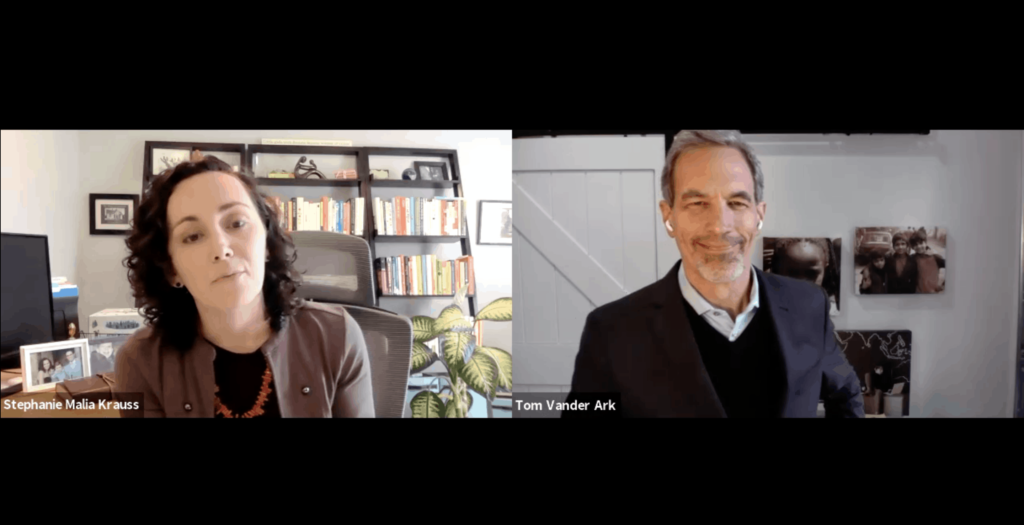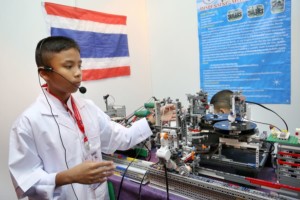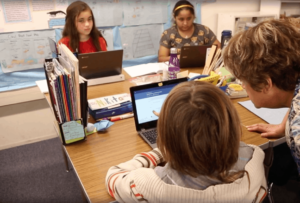Stephanie Krauss on Readiness, Opportunity, and The Right to a Decent Life

On this episode of the Getting Smart Podcast, Stephanie Krauss talks with Tom Vander Ark about her new book Making It: What Today’s Kids Need for Tomorrow’s World.
Stephanie is an educator, social worker, researcher, and writer. Her work focuses on what young people need in the first quarter of life, in order to thrive and be ready for adulthood. Stephanie is a senior advisor to JFF and a staff consultant for the Youth Transition Funders Group.
Let’s listen in as she talks to Tom about the new checklist for young adults, science and a new set of currencies.
Stephanie grew up one of five kids. They lived in a well-resourced area, but her family wasn’t as well-off as the rest of the community. She dropped out of school and completed her GED while one of her other siblings was a valedictorian and went to Harvard. “Learning happens wherever it happens. Educators come in all kinds of roles,” she said.
“What does it really take to be ready […] how do we make sure every kid gets that chance?”
Her new book, Making It: What Today’s Kids Need for Tomorrow’s World suggests that we need “a better roadmap to navigate the world as it is, in a country that is still unfair and unjust”. Within this book she outlines the new four currencies needed to thrive in our society.
“In education, the past 20 years have focused on academic success; the next 20 need to include social and emotional development, as well as cognitive and physical fitness.”
1. Competencies: the knowledge, skills and abilities that are most important to live, learn and work. We will consider which competencies count more than others. The book goes into depth on what these ways of being and doing are and emphasizes how they can be nurtured over time. Some of these competencies are physical body systems, one of the newest competencies is cognitive health.
2. Connections: the relationships and networks that help us in life and at work. We will consider why who you know really matters. ” We can not guarantee stability, but people expect/want it”, said Krauss. “How do we use who we know as a benefit?” Similar to points made by Julia Freeland Fisher in her Getting Smart Podcast episode.
3. Credentials: the degrees and certificates young people earn beyond high school. We will think about which credentials really matter and whether they need to be earned from a college or university. “Instead of saying where do I want to go to college, it’s a set of questions about what do I need in the next few years? What can I do to move forward? What opportunities will springboard that?” she asked. (For more on this currency, check out Michael Horn’s Choosing College.)
4. Cash: the money and assets you need to get by and get ahead. We will think about scarcity, intergenerational disadvantage and what new economic innovations and ideas — such as cryptocurrency — mean for today’s young people. “How do we prepare kids for being poor?” asked Stephanie, citing a statistic that most kids will experience periods of cash scarcity. This currency also requires re-evaluating the cost of an unpaid internship and revamping financial literacy.
“Young people need all four [currencies] but in different amounts,” she said. “It’s a deep injustice if we as educators say ‘if you’re just skilled enough, if you get that degree, you’ll be ok.”
Lastly, Stephanie covered becoming a currency builder: people who transform the places and spaces where young people learn into currency-rich environments. These are the five steps for working towards that goal:
- Take a whole-person, whole-life approach.
- Make currencies a part of every learning experience.
- Build currencies wherever young people spent time.
- Be just, inclusive, and caring.
- Be advocates and allies.
Key Takeaways:
[:11] About today’s episode with Stephanie Krauss.
[:43] Tom Vander Ark welcomes Stephanie to the podcast!
[1:22] Stephanie chose to pursue social work to better understand the social and financial realities of kids.
[3:27] The “Readiness is a Right” philosophy.
[7:59] Stephanie’s book, Making It: What Today’s Kids Need for Tomorrow’s World, unpacks the complexity and explains the injustice of what is required for readiness.
[12:36] Stephanie describes the new currencies she focuses on in her book, Making It.
[20:11] Injustices and inequities in social capital and the role it plays in a child’s life.
[25:07] How young people can be discerning about choosing credentials and cash.
[27:32] Stephanie tackles the lack of access to capital/cash for students living in poverty.
[31:44] Specific ways educators and community leaders can be currency builders.
Mentioned in the Episode:
- Stephanie Malia Krauss
- Making It: What Today’s Kids Need for Tomorrow’s World, by Stephanie Krauss
- Who You Know: Unlocking Innovations That Expand Students‘ Networks, by Julia Freeland Fisher, with Daniel Fisher, foreword by Clayton M. Christensen
Stay in-the-know with innovations in learning by signing up for the weekly Smart Update.





0 Comments
Leave a Comment
Your email address will not be published. All fields are required.